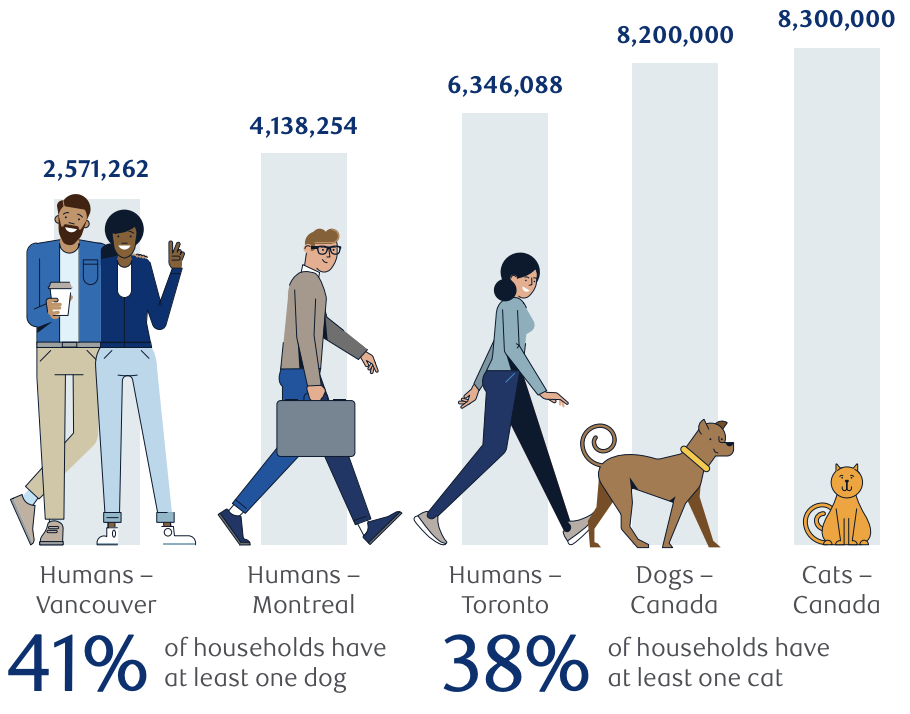With an estimated 57% of Canadian households owning a pet these days, it’s clear that we love our furry (or sometimes slippery) friends. While the overwhelming majority of pets are cats and dogs (by raw numbers, cats have a slight edge over dogs), pets come in many shapes and sizes, from long and reptile to small and scurrying. But they all have one critical thing in common: they rely on us, their owners, for their safety, security and well-being.
Our pawbligation
While we can debate endlessly as to who owns who – pet or human – we can’t debate that our pets rely on us to feed and care for them, as well as to provide them with a secure environment. In short, we have an ethical obligation to secure their well-being. And while that may seem straightforward when we are in good health, it also means that we should make arrangements for someone to care for them after we’re gone, or if we become unable or incapacitated in some way.
Avoiding a cat-astrophe: a little planning goes a long way
Canadian common law states that pets are considered to be the personal property of their owners. Consequently, they do not have the legal capacity to receive gifts made in Wills by their owners. So, how can you ensure that your pet is properly cared for when you are gone, or if you are unable to do so? Here are four ways to make them part of your estate plan:
- Testamentary gift: You can make a gift in your Will of your pet to a trusted individual, along with enough funds to ensure that your “beneficiary” can care for your pet during your pet’s life.
- Pet trusts: You can set up a trust to provide funds to a third party for the benefit of your pet. One thing to consider: as there is no guarantee the person you assign to be the trustee will honour the arrangement to oversee your pet, you might consider appointing a “protector” whose role is to supervise the trustee.
- Pet foster programs: Some humane societies offer “foster” programs, which allow a pet parent to enter into an agreement where a search is carried out for a suitable foster parent following an owner’s death.
- Power of attorney: If you become incapacitated, your pet or pets will need someone to care for them. You can put instructions in your enduring or continuing power of attorney for property (a Protection Mandate in Quebec) which enables your appointed attorney (mandatary in Quebec) to manage your assets and property, including care for your pet.
Our pets are often seen as one of the family, and as cherished friends and companions. Consulting with your legal counsel to ensure that there is continuity in their care can help avoid any “un-fur-tunate” outcomes once you are gone.
Raining cats and dogs – The population of two of Canada's most popular four-legged friends

Source: 2018 Kynetec (formerly Ipsos) survey, conducted on behalf of the Canadian Animal Health Institute (CAHI).
